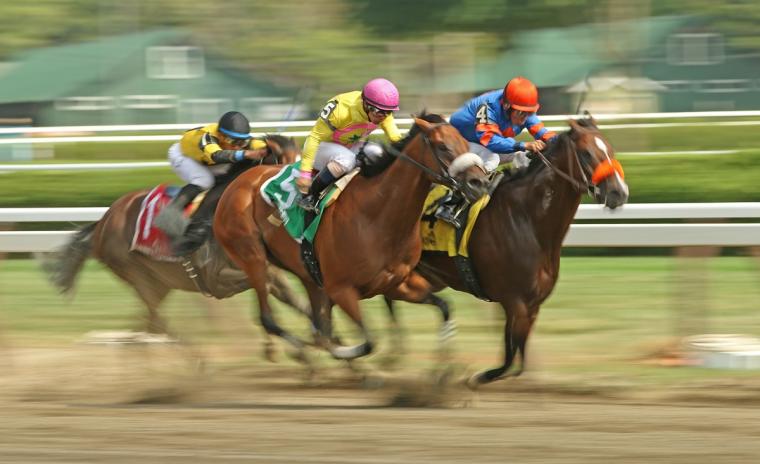
After years of complaints about the inadequate, outdated facility, and even more years of threats to move the race, the owner of Pimlico Race Course has reached an agreement to donate the historic Baltimore track to the Maryland state government.
The announcement, made in mid-March, noted that the state is expected to take control of the track’s operations sometime this summer.
According to WYPR, “The hand-off will allow the state to plow hundreds of millions of dollars into modernizing the track, as well as build a new training center at a location to be determined. A bill was introduced in the Maryland General Assembly to pave the way for the construction and for the state to eventually run daily racing through a nonprofit entity that will be created.”
It’s no secret that Pimlico needs help, and needs it badly. A report released in January by the Maryland Thoroughbred Operating Authority confirmed that a complete rebuild of the facility would take approximately three years. During those three years, it would be necessary to move the Preakness to another track, mostly likely Laurel Park, also in Maryland; that facility is owned by the same organization that currently owns Pimlico.
Reporters at the Baltimore Sun note, “If lawmakers approve the bill, and all goes well, Pimlico would close shortly after the annual “Run for the Black-Eyed Susans,” and a rebuilt track could be back in the business of hosting the Preakness Stakes in three years, supported by a new training facility in one of three proposed sites in Aberdeen, Woodbine or Bowie.”
“This is a new day … We get to bet on ourselves. We're going to control our own destiny,” said Baltimore attorney Greg Cross, who heads a state authority that came up with the plan and negotiated the deal with The Stronach Group, in a quote picked up by The Thoroughbred Daily News.

But not everyone is in favor of putting money into a new facility, and in fact, some are adamantly against it, arguing that what Baltimore needs is investment in its neighborhoods, not a losing bet on a multi-million-dollar facility that does not see crowds outside of a few high-profile races per year. In this case, they say, it pays to look a gift horse in the mouth.
“When the insiders operating a business are not only eager to run away from it but to hand you the keys to the building on their way out, that’s a good sign you’re doomed,” wrote Stephen J.K. Walters, chief economist at the Maryland Public Policy Institute, in an epic rebuttal to the measure:
“Stronach loses about $10 million annually on its Maryland tracks, even after the generous subsidies they’re pocketing from their cut of casino revenues. Such consistent and sizeable losses are nature’s way of telling you that people value what you’re selling far less than it costs to produce, so it’s time to re-deploy your assets in something people value more. And it’s going to get worse. More than 40 U.S. tracks have closed since 2000; less than half as many races are run today as in the ’90s. Many young people refuse to watch a sport they consider cruel.
Now the Maryland Stadium Authority may be authorized to oversee the next step in the state’s long-running bailout of the moribund horse-racing industry in Maryland. The selling point is that “we need to save the Preakness!” The cost of preserving that single profitable day of horse racing in Maryland will not only be the aforementioned hundreds of millions to rebuild the dilapidated Pimlico facility. The current owner of that facility will “donate” that crumbling ruin to the state, which will create a “nonprofit” (you can say that again) to operate the rebuilt track and which will pay the “donor” Stronach Group for the right to run the Preakness Stakes so Marylanders can enjoy that one-day party at Old Hilltop.” (Side note: Ouch.)
Horse racing in Maryland, though it has a deep past, may not have as much of a future as traditionalists would hope. The Preakness generates crowds and revenue but it is one of the very few live racing days at Pimlico that does so. Other races make money, but most are those held in May, around the same time as the Preakness.
Pimlico has tried to bring in business by hosting other events over the years. It has been the site of various concerts and music festivals; one of these was the now defunct Virgin Mobile Festival. The last remaining music festival at Pimlico, Moonrise, will not return this year and emails regarding the event are being returned. Members of the Orthodox Jewish community living in the area of the race track also use Pimlico Race Course to burn chametz food items each year prior to Passover.
Over the years, multiple other suggestions have been made to generate non-racing use of Pimlico, including one that involves using the infield (now occupied only by partying and concerts during the Preakness) to house athletic fields, which could allow the track to become a sports tourism site.
Interestingly enough, Laurel Park, Stronach’s other racecourse in Maryland, already hosts esports at its facility.

